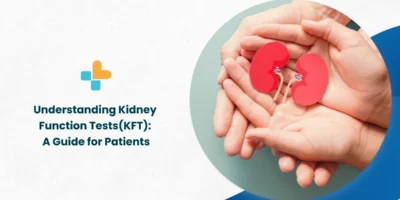
Did you know that our kidneys filter close to 170 litres of blood every day?!
Well, that tells us how important our kidneys are, to filter out body waste. When kidney failure happens, the kidneys become incapable of doing this. So, what can solve this problem?
There are primarily two methods of treatment in this case- dialysis and kidney transplant.
Dialysis is an outpatient procedure in which blood is filtered using a dialysis machine where as a kidney transplant is a major surgery. The surgery involves implanting a kidney from a healthy person into the patient’s body.
In this article, let’s explore the pros and cons of each of these methods for different criteria.
Access to Dialysis
Dialysis is the most commonly used procedure to address kidney failure across the world. You can easily find a dialysis centre to undergo the procedure.
However, access to a donor kidney is not as easily available. Unless you have someone in your family who is willing to donate, the waiting time for a healthy kidney is almost 4 years. The reasons for the long waiting period are – disproportionate demand with low supply, finding the organ which is a perfect match for the patient is tough.
The actual procedure and its risks
Dialysis is an outpatient procedure. So, you can be home immediately after the procedure gets done. But it needs to be done 2-3 times in a week and each time, the procedure takes around 4 hours. This means, dialysis requires regular visits to the hospital and spending a significant amount of time over there. No major risks are associated with this procedure except for a few dietary restrictions and medications.
The kidney transplant procedure is major surgery. So, all the risks associated with a major surgery like bleeding, infection, damage to other organs, etc come into the picture. Hence, older people or people with heart disease are advised to go for dialysis rather than a transplant.
In addition to this, there is a risk of the donor kidney being rejected by the recipient. To avoid this, patients need to take immunosuppressants which can be risky and can lead to more complications.
Cost
The expense of dialysis vs kidney transplant can be compared to paying small amounts at regular intervals vs paying a lump sum amount.
The average cost of dialysis per month can be anywhere between Rs 10000 and Rs 30000 (purely indicative). This might seem like a smaller amount in comparison to a kidney transplant which can cost around Rs 3 to 10 lakhs (purely indicative).
However, in the long run, dialysis can turn out to be costlier as it is a procedure that needs to be done 2-3 times a week in most cases.
Impact of the procedure
Dialysis is only 10-15% as effective as a healthy kidney. So, the actual functions of the kidney are not fulfilled to have a healthy system.
However, after a transplant, if the donor’s kidney is well accepted by the body, almost all the functions of the kidney resume. This increases the life expectancy of the patient. With a kidney transplant from someone who is brain-dead, life expectancy increases to 30 years. Life expectancy increases to 40 years for a kidney transplant done with a kidney from a living donor.
Apart from the recovery period after the surgery, the patient can lead a more fulfilling life that does not revolve around frequent and regular hospitals which is true for a person on dialysis.
There are almost no travel and dietary restrictions a few months after surgery. So, there is a huge improvement in the quality of life of the patient.
Overall, enrolling for a kidney transplant as soon as the kidney failure is discovered and being on dialysis till the donor’s kidney is available is probably the best route to follow.
Ayu Health have an experienced transplant team consisting of highly trained and well-experienced surgeons, nephrologists and anesthetists. Having a state-of-the-art AKU (Artificial Kidney Unit) backed by a high-quality dialysis unit has led to 100+ successful kidney transplants.
Contact Ayu Health for the most experienced doctors, transparent price packages and hassle-free transplant procedures.
Our Hospital Locations
Urology Surgery Hospitals in Chandigarh | Urology Surgery Hospitals in Bangalore | Urology Surgery Hospitals in Jaipur | Urology Surgery Hospitals in NCR | Urology Surgery Hospitals in Hyderabad
Our Doctors
Urology Surgery Doctors in Chandigarh | Urology Surgery Doctors in Bangalore | Urology Surgery Doctors in Jaipur | Urology Surgery Doctors in NCR | Urology Surgery Doctors in Hyderabad



